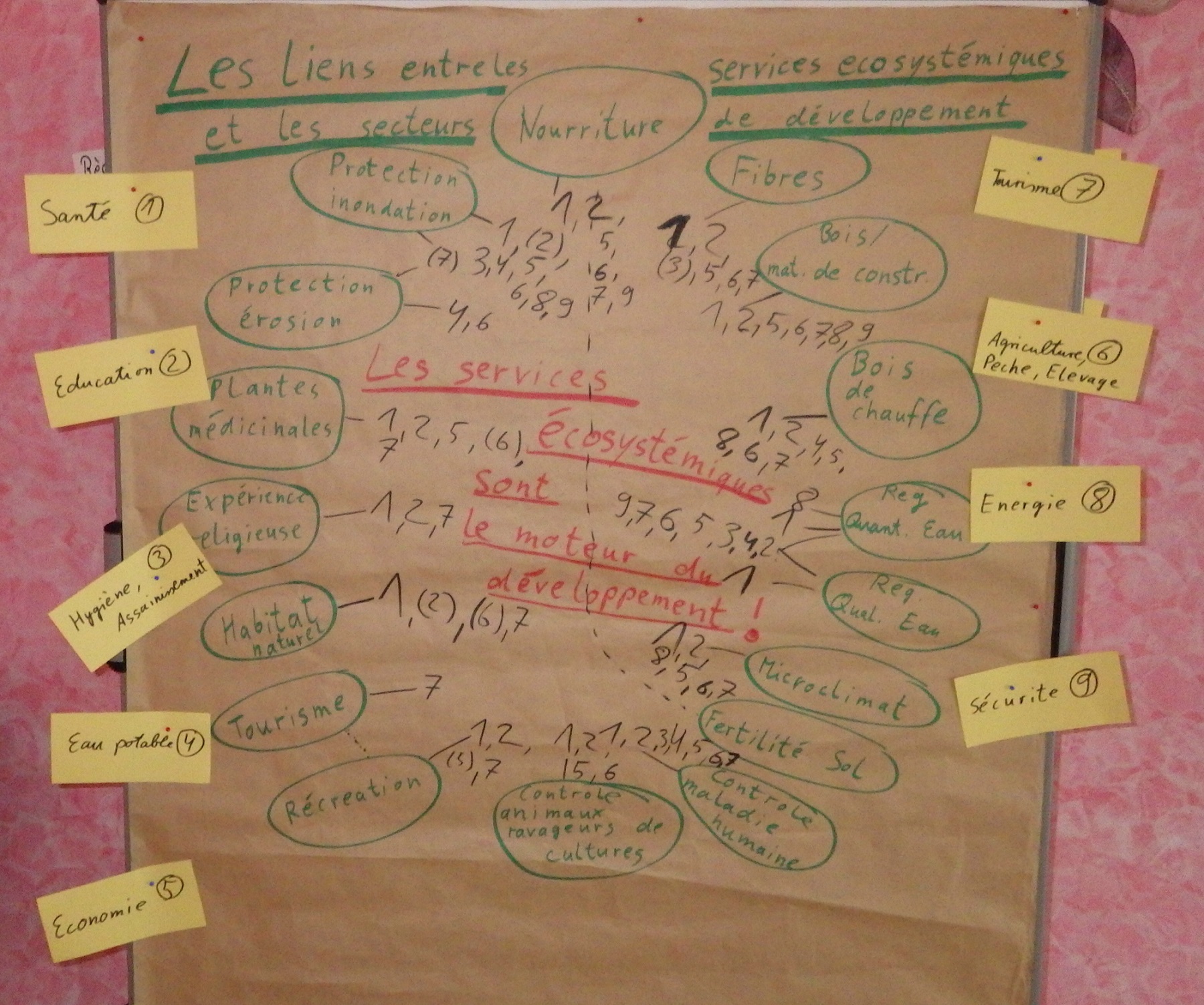Integrating ecosystem services into development planning
Link between ecosystem services and development sectors
GIZ Yasmina Adebi
Despite the strong dependence of the local and national economy on natural resources, the concept of ecosystem services is new for most decision-makers in Benin and Togo. Furthermore, due to a lack of knowledge about natural processes, the degradation and loss of natural resources was acknowledged, but their decline was often not attributed to current practices. Existing communal development plans focus on sectors such as water, agriculture and infrastructure, while not taking into account the importance of ecosystem services for these sectors.
Training sessions on "Integration of ecosystem services into development planning" enabled stakeholder groups from different sectors to discuss issues of conservation of ecosystem services in the Mono Delta and to understand the link between conservation of these services and the sustainable development of the region.
In order to improve the process of drafting development plans and strengthen the capacity of decision-makers at the local and regional levels, several workshops were organized to familiarize stakeholders with the ecosystem services approach and its application to the planning process.
• Participatory approach involving stakeholders and decision-makers from multiple levels and sectors.
• Focus on the utility of ecosystem services for the economic development of the region.
• Existence / creation of a good knowledge of natural processes in the region (water cycle, soil fertility, pollination, etc.)
• Existence of training materials on the approach of integration of ecosystem services into development planning in the national language.
A major challenge in raising awareness among and training of stakeholders / decision-makers is the fact that there are large gaps in basic knowledge about natural processes (e.g., water cycle, improvement of soil fertility, pollination) and climate projections. It was therefore necessary to train decision-makers not only on the steps of integration of ecosystem services into the planning documents, but also on the links between these services and the sectors of interest as well as concrete measures to ensure the availability of ecosystem services in the long term in an uncertain climate scenario corridor. As a result, the technical assistance process takes a long time.
In addition, little educational material (textbooks, films, etc.) on ecosystem services is available in French, and the didactic materials in English are not easily understood by many Beninese and Togolese decision-makers. It is therefore crucial to translate and/or develop adequate material.

